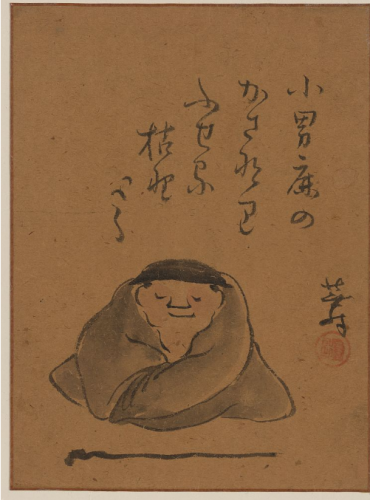Mental Health Monday: Meditation

We are not mental health professionals. If you are feeling overwhelmed with emotions like anxiety or depression, or they are impacting your daily life, please reach out to professionals who can help you. If you need immediate help, use the National Suicide Hotline, 1-800-273-8255, which offers online chats as well. Jewish Community Services also offer help for people experiencing emotional crises.
We aim to provide some tips and guides to help those who are self-isolating, and to connect with our JMM community. These ideas might not work for everyone, but we hope that by starting the conversation about mental health, we can inspire you to take a moment to breathe and reflect on what you need today to feel good.
~Talia Makowsky, JMM Visitor Services Coordinator
Mindfulness has become a common lifestyle term, coming to mean a lot of different things, including being present in the moment. However, practicing mindfulness through meditation can provide many different benefits, some of which we could all use at the moment.

Often meditation to practice mindfulness can just be a few moments of sitting still, which can be a challenge for many folks. One guide suggests sitting for just a few minutes and following your breath as it enters and leaves your body. If you start having distracting thoughts, let them come and make a note of what is at the top of your mind. However, focus on your breath and let those thoughts pass. Sitting and breathing might sound simple, but there are many reasons why people find meditation so grounding.

For one, certain studies show that regular meditation can allow a person to focus better. Especially as we adjust to new work routines at home, finding ways to focus better is important. Try meditating for just a few minutes each day or almost every day and see if those distracting thoughts don’t have quite a strong a hold on your mind. You may find that by practicing mindfulness meditation, you can more easily dismiss distractions coming from your brain.
Meditation has also helped people deal with stress and other mental health conditions. As a note, research suggests that meditation is just one kind of activity that can provide some help. People with such conditions should work with a professional to figure out the proper treatment for them. However, doing meditation along with other activities, like exercise, can provide a moderate amount of relief. I encourage you to try it out if you’re feeling particularly stressed or anxious.
There are tons of places to get started to find a meditation practice that’s right for you. While many studies cited focus on mindfulness meditation, there are different types, such as spiritual meditation, mantra meditation, movement meditation, and more. There are many different guided meditations on YouTube, and even apps you can download, such as the super-popular Headspace app.

The full benefits of meditation are still being researched, and the effects may not be the same for everyone. Sometimes, meditation can even be a difficult or triggering activity, for those who struggle with sitting alone with their thoughts. As always, if this practice doesn’t work for you, don’t do it! We’ll have more ways to relieve stress and help your mental health in next week’s post.
